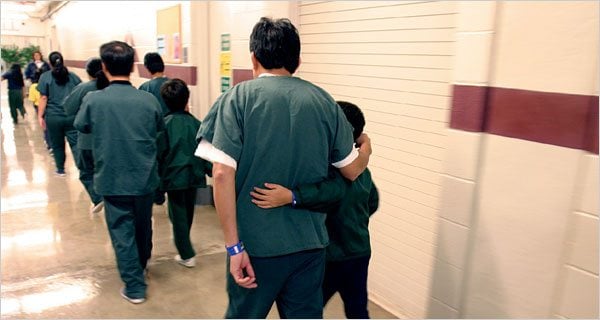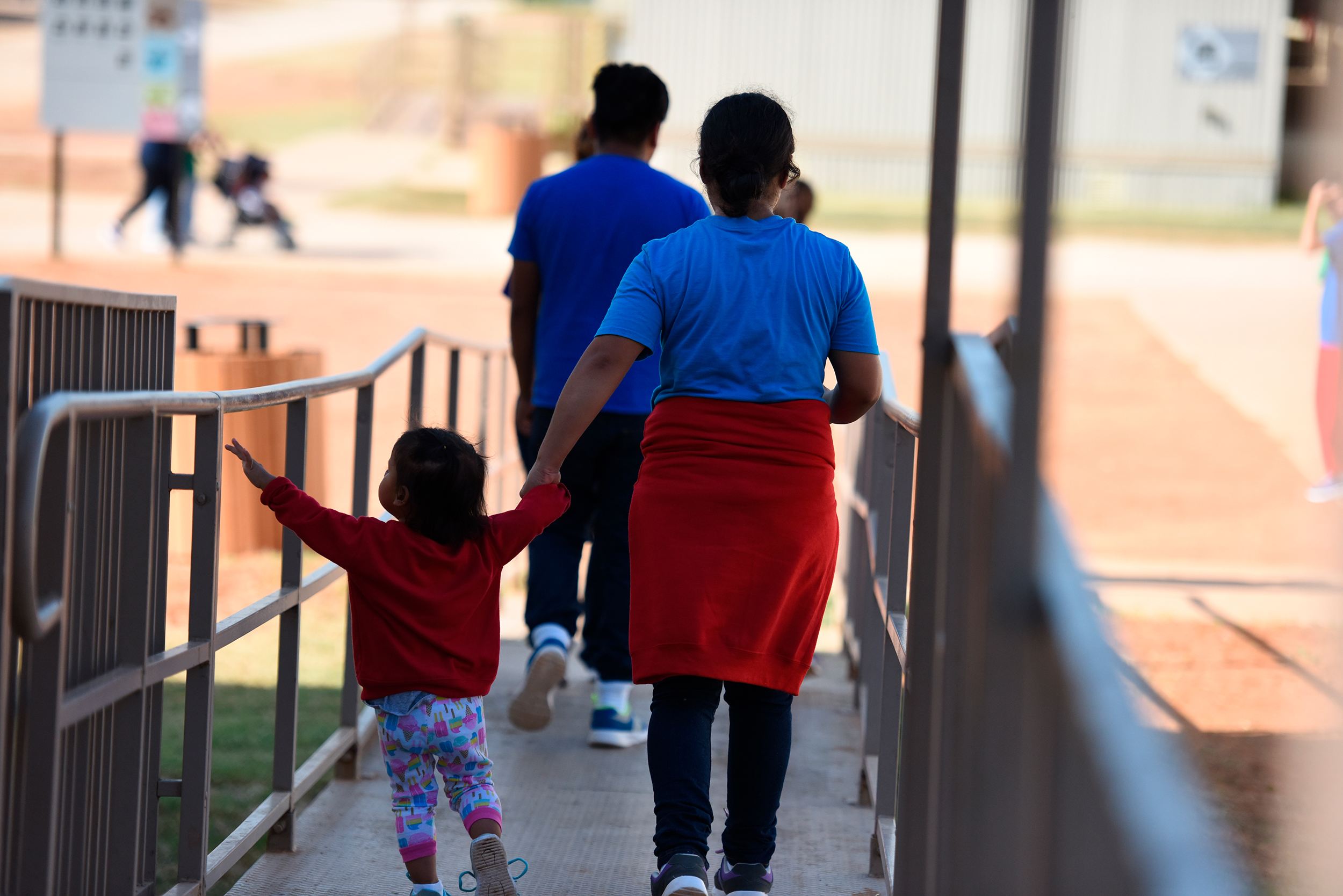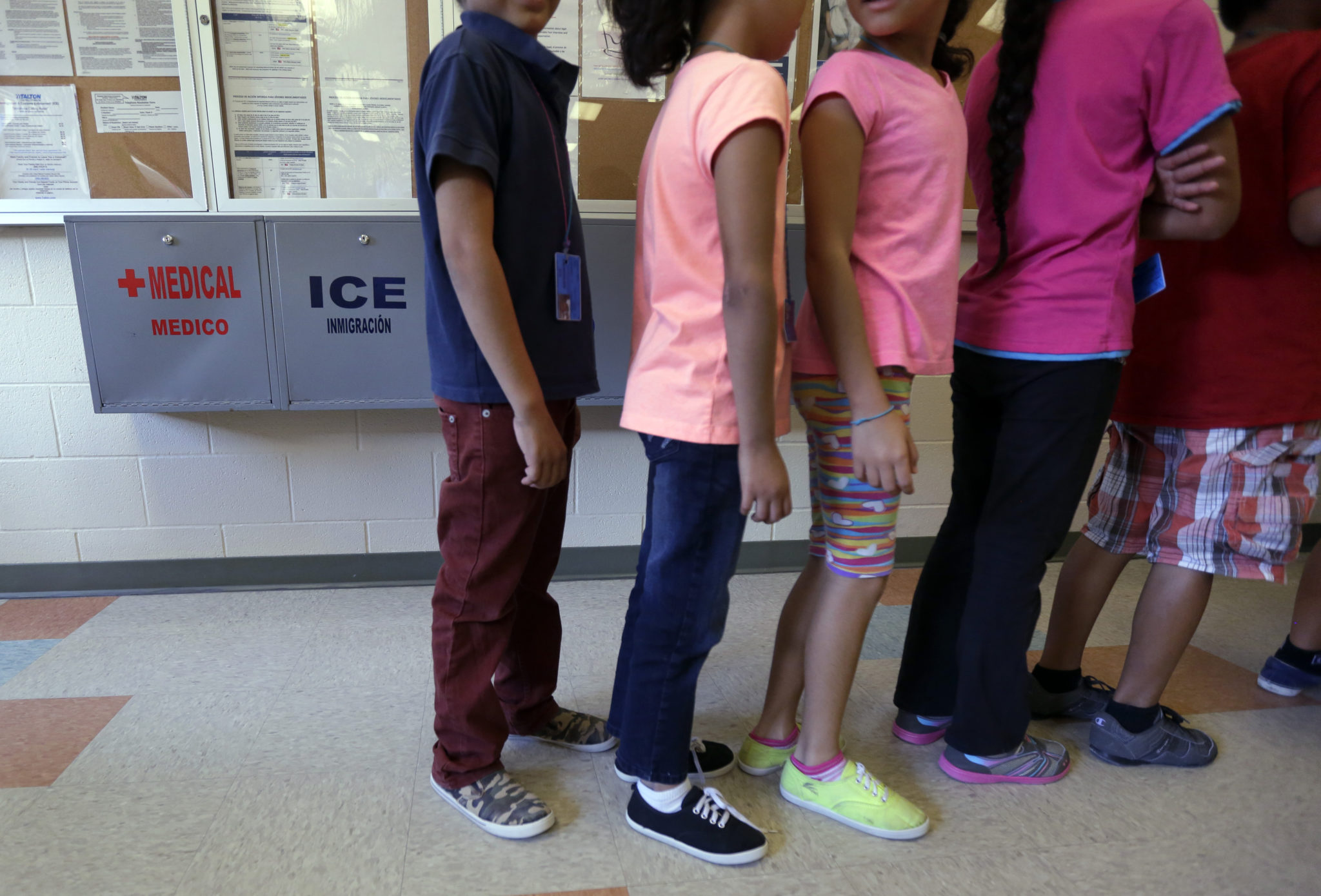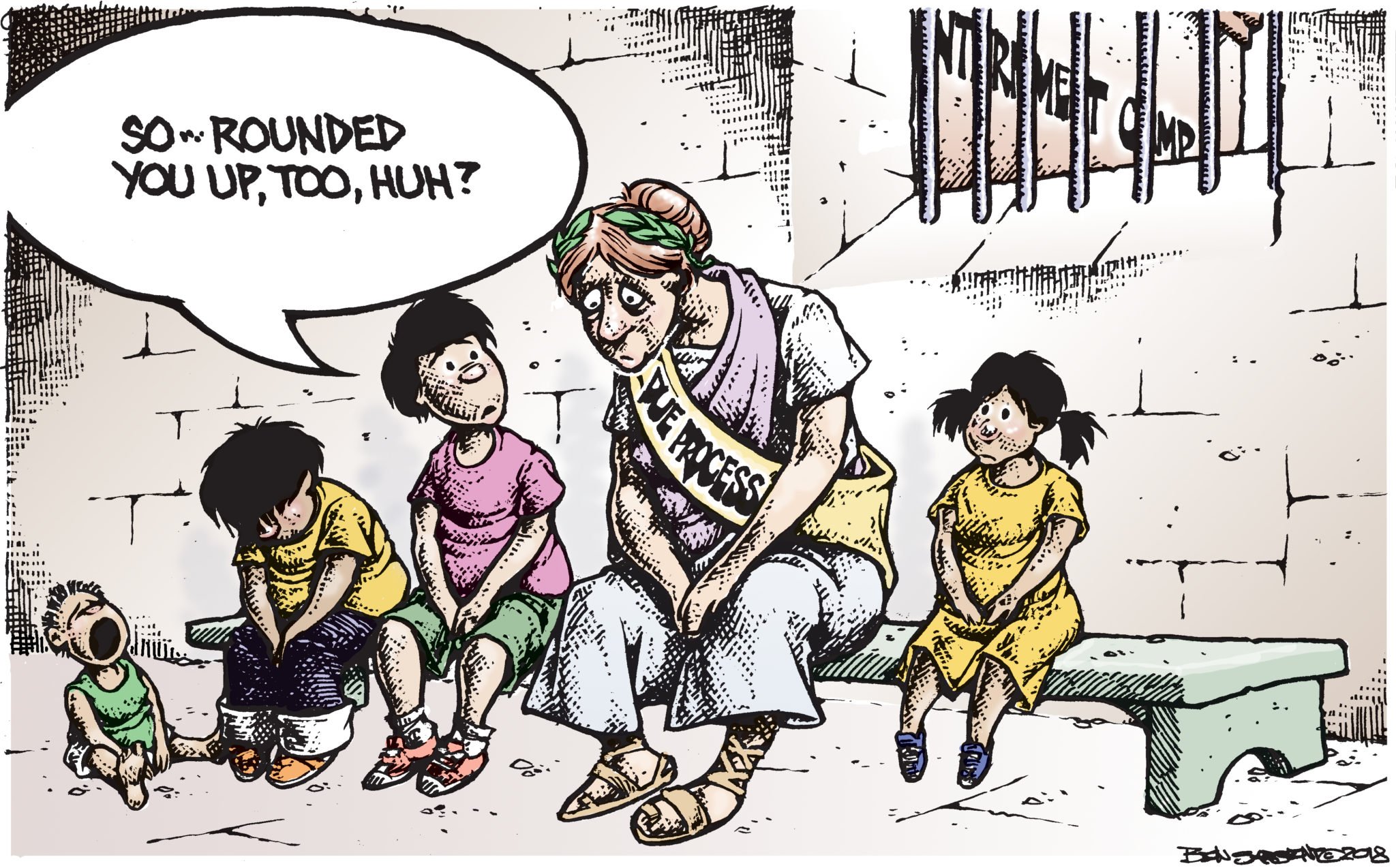
An End to Family Detention? Immigration Groups are Wary

Above: The director of Immigration and Customs Enforcement told D.C. lawmakers Thursday that family detention centers, housing immigrant women and children, would be retooled to hold men only, or perhaps men and children.
A top immigration official told D.C. lawmakers Thursday that the Karnes Family Residential Center — one of two immigrant detention centers in Texas that houses immigrant women and their children — will be converted to an all-male facility, possibly with kids.
In response to a question from U.S. Representative Lucille Roybal-Allard, D-California, about whether Immigration and Customs Enforcement (ICE) would stop locking up migrant families fleeing persecution in their home countries, the Guardian reported that ICE Director Sarah Saldaña said:
“Well, we’re pretty much there on the decision on Karnes,” Saldaña said. “We are probably going to convert that into — our plans are to convert that into — an adult male, perhaps with children, facility. Not a family facility as it is now, with largely women.”
Texas immigrant rights advocates, though, aren’t celebrating just yet. Saldaña’s statement isn’t definitive, they said, and came with very little other information, such as the process and timeline of the conversion.
“We’re just trying to figure out, what does this mean, right?” Cristina Parker, immigration programs director with the nonprofit Grassroots Leadership, told the Observer Friday morning. “It seems strange to me that they would convert it to an all-male facility. And I don’t know what ‘perhaps with children’ means,” she said.
Grassroots Leadership has long fought to end immigrant detention and close privately-owned detention facilities, including Karnes, the South Texas Family Residential Center in Dilley, and the T. Don Hutto women’s detention center in Taylor. Parker said her staff is working to find out more about Saldaña’s comment, but isn’t optimistic that they’ll get more details from ICE anytime soon.
Nina Pruneda, spokesperson for ICE, told the Observer that she needed more time to look into questions about the plan, including details and logistics of the conversion.
“I’m going to work on it and see if I can get back to you,” Pruneda told the Observer. She did not provide further information as of publication.
Mohammad Abdollahi, spokesperson for the pro bono legal group RAICES, which represents detained families, said yesterday’s statement was the first anyone had heard about a Karnes conversion. He said immigrant rights groups in Texas and D.C. meet with ICE officials regularly to discuss problems surrounding family detention, but no one made any mention of the plan.
“For us, it’s kind of like we have to see it before we believe it,” he told the Observer. “We don’t really have much faith in it at the moment because … it was never brought to us.”
The 500-bed Karnes facility, owned by the private prison company GEO Group, originally housed immigrant men before the Obama administration converted it to a family detention center in 2014, five years after ending the practice of detaining migrant mothers and children. The administration reinstated the facility, it said, in response to the influx of unaccompanied minors and families fleeing violence in their home countries.
Weeks after Karnes reopened as a family detention center, allegations of sexual abuse surfaced, reminiscent of the human rights and sexual abuse violations uncovered at the T. Don Hutto facility in 2009. Immigration and human rights groups have also decried the prison-like conditions detained women and children face, including insufficient nutrition, little medical care and emotional trauma.
Grassroots Leadership and RAICES leaders told the Observer that the prospect of converting Karnes back to an all-male center is nowhere close to their ultimate goal.
“What is [the Department of Homeland Security’s] definition of family detention?” Abdollahi said. “It’s not going to be anything different: it’s just going to be dads with their babies instead of moms.”
Parker said she hopes that Saldaña’s statement means the beginning of the end for family detention. Still, she pointed out, the Karnes facility and the 2,400-bed detention center in Dilley are owned by private prison companies that financially benefit from filling the centers as a result of the terms of their contract with ICE.
“These facilities get paid per day, per person. They’re not going to not fill that facility with people,” she said. “Ultimately, we want to see the facilities closed and bulldozed, and never holding people ever again.”


